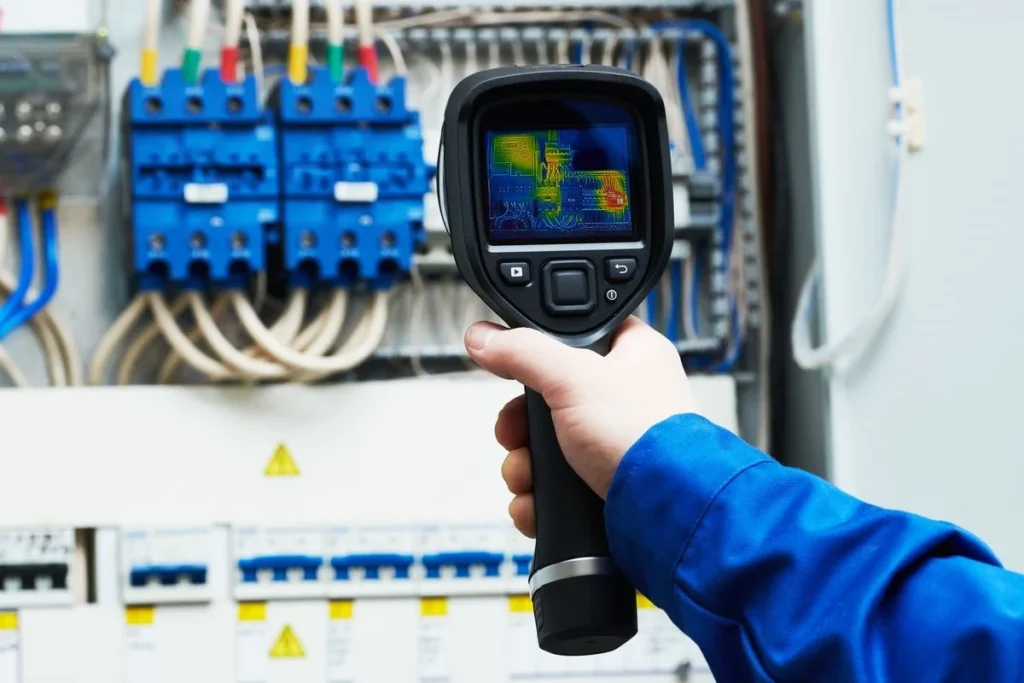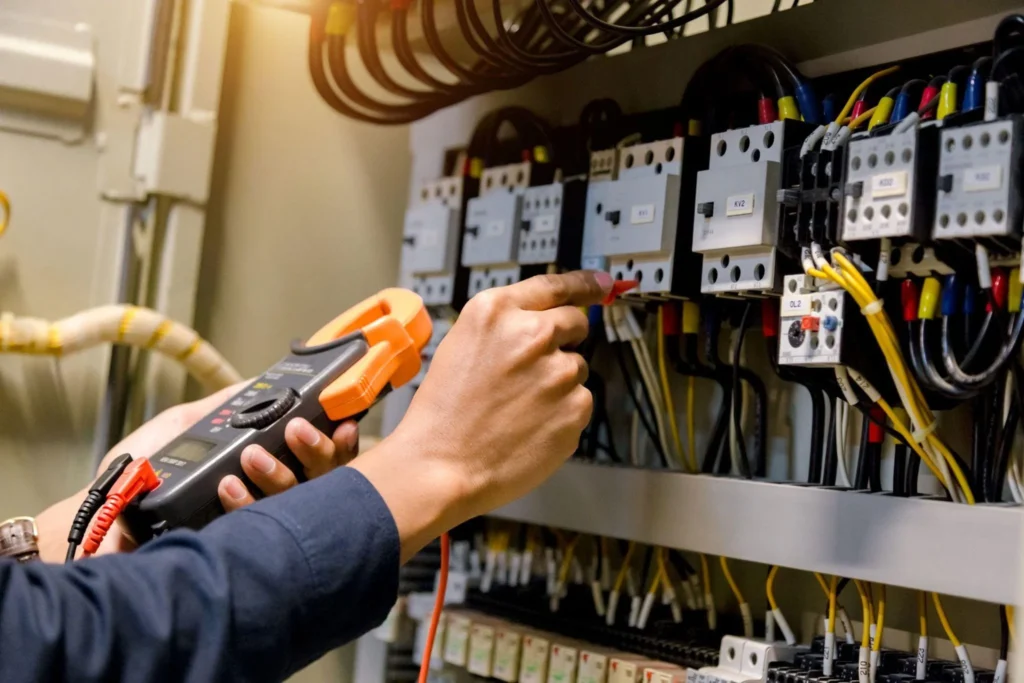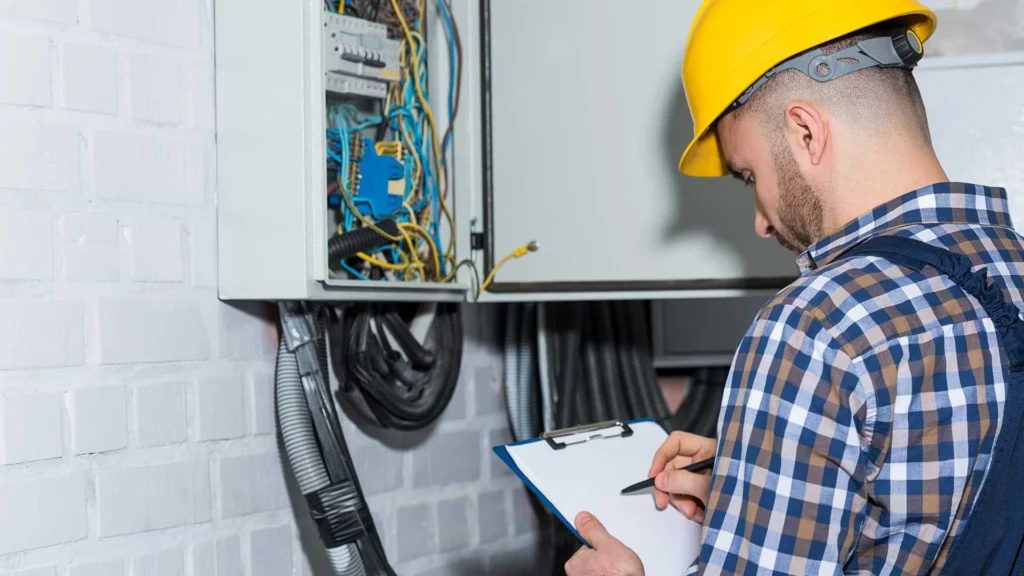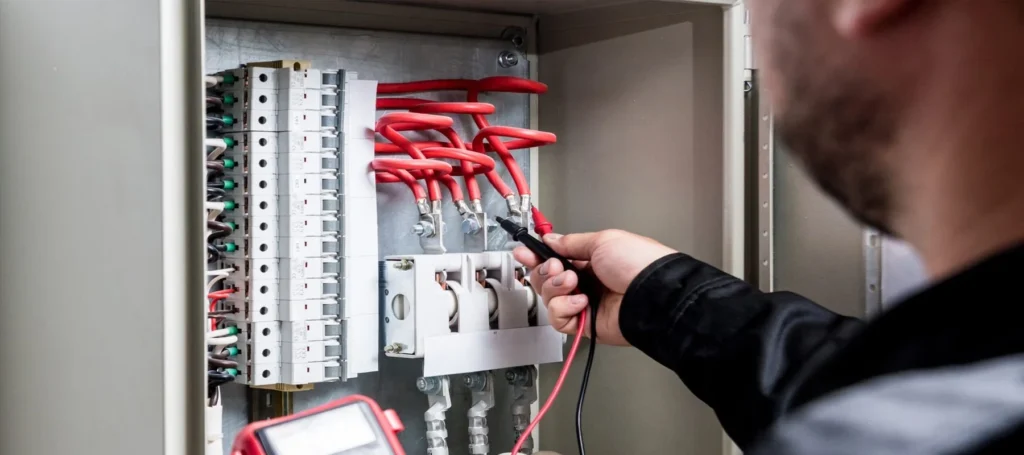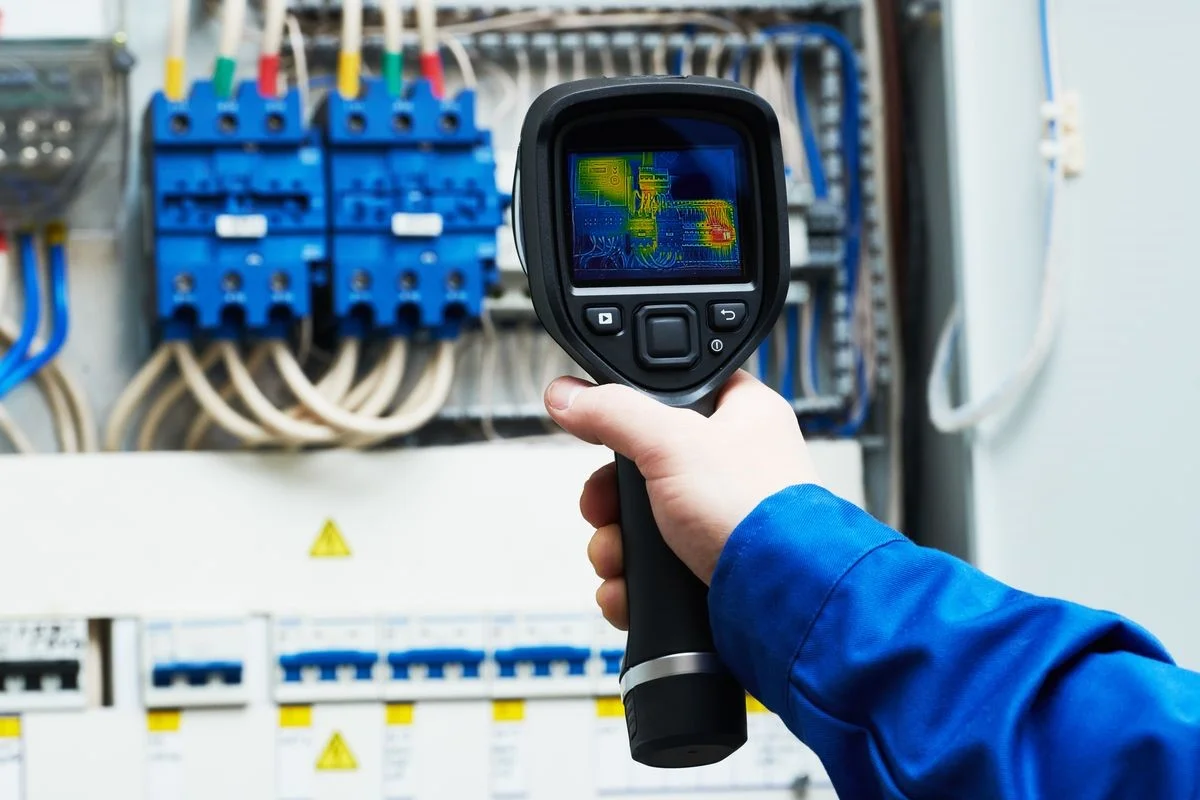Home Preparing Your Home for a Safe & Bright Holiday Season The holidays are officially here — and with Thanksgiving […]
When was the last time you had your electrical system inspected? If you can’t remember, it might be time to schedule an electrical inspection in Longmont. Electrical inspections are essential for ensuring the safety, efficiency, and longevity of your home’s electrical system. But how often should you schedule one? Let’s dive into the factors that determine the timing and frequency of electrical inspections.
The Importance of Regular Electrical Inspection in Longmont?
Electrical systems are the backbone of every modern home, powering everything from lighting to appliances. Over time, these systems can experience wear and tear, leading to potential hazards such as electrical fires, power outages, or damage to expensive equipment.
Scheduling regular electrical inspections in Longmont ensures that your system is functioning properly and adheres to local building codes and safety standards. An inspection can help identify issues early, saving you from costly repairs and ensuring the safety of your family.
General Guidelines for Electrical Inspections
While the exact frequency of inspections depends on several factors, the following general guidelines can help you decide when to schedule an electrical inspection in Longmont:
- New Home Purchase If you’re buying a new home in Longmont, it’s essential to schedule an electrical inspection before closing the deal. Even newly constructed homes can have hidden issues, such as improper wiring or code violations.
- After Major Renovations Any significant remodeling project that involves electrical work should be followed by an inspection. This ensures the new installations are safe and compliant with local regulations.
- Every 3 to 5 Years for Older Homes Homes older than 25 years should undergo an electrical inspection every three to five years. Older wiring systems, such as knob-and-tube or aluminum wiring, are more prone to wear and may not meet modern safety standards.
- When Adding New Appliances Adding high-demand appliances like HVAC systems, electric water heaters, or EV chargers can strain your electrical system. An inspection ensures your system can handle the increased load.
After a Major Storm or Power Surge Severe weather or power surges can damage electrical systems. If your home has experienced a significant storm, schedule an inspection to check for hidden issues.
Factors That Affect Inspection Frequency
The recommended frequency of an electrical inspection in Longmont can vary based on several factors:
- Age of the Property Older homes typically require more frequent inspections due to outdated wiring systems and the potential for wear and tear.
- Type of Wiring Homes with aluminum or knob-and-tube wiring may require more frequent inspections to address safety concerns.
- Usage Patterns If your household uses a lot of electricity or has many high-demand appliances, you may need more frequent inspections to ensure the system is not overloaded.
- Local Regulations Longmont has specific building codes and regulations that may dictate how often inspections are needed, especially for rental properties or commercial spaces.
Signs You Need an Immediate Electrical Inspection
Even if you’re not due for a routine inspection, certain warning signs indicate you should schedule an electrical inspection in Longmont right away:
- Flickering or dimming lights
- Frequently tripped circuit breakers
- Warm or discolored outlets
- Burning smells near electrical outlets
- Buzzing sounds from the walls
- Outlets that don’t work
These issues could signal serious electrical problems that require immediate attention to prevent potential hazards.
What Happens During an Electrical Inspection?
When you schedule an electrical inspection in Longmont, a licensed electrician will:
- Examine the Wiring The electrician checks for frayed, exposed, or outdated wiring and ensures all connections are secure.
- Inspect the Electrical Panel The panel is inspected for signs of wear, corrosion, or improper labeling. The electrician will also ensure the panel can handle your home’s electrical load.
- Test Outlets and Switches Outlets and switches are tested for proper function, grounding, and any signs of overheating.
- Verify Grounding Systems Grounding systems are essential for electrical safety, and the electrician will ensure they are properly installed and functioning.
- Check Compliance with Local Codes The inspection ensures that your home’s electrical system complies with Longmont’s building codes and safety standards.
Finding a Trusted Electrician in Longmont
When scheduling an electrical inspection, it’s crucial to hire a licensed and experienced electrician familiar with Longmont’s codes and regulations. Look for professionals with positive reviews, proper certifications, and a commitment to customer satisfaction.
Conclusion
Regular electrical inspection in Longmont are vital for maintaining the safety, efficiency, and longevity of your home’s electrical system. While the recommended frequency varies based on factors like the age of your home and usage patterns, following the general guidelines and paying attention to warning signs can help you determine when an inspection is necessary.
Don’t wait for an electrical issue to escalate into a major problem. Schedule an electrical inspection today with All Spark Electric and ensure your home remains safe and efficient for years to come.
Recent Posts
Home Preparing Your Electrical System for Fall &…
Home What Marks a Top-Tier Electrician for your…
Home Why Must Homeowners Demand Expert Electrical Reviews?…
Home How Does an Electrical Check Keep Your…
Home What Ignites the Push for a Service…
Related Posts
Home Preparing Your Electrical System for Fall & Winter As the leaves turn and the air grows crisp, Fall is […]
Home What Marks a Top-Tier Electrician for your Projects? Selecting the right electrician for your home or business is crucial […]




